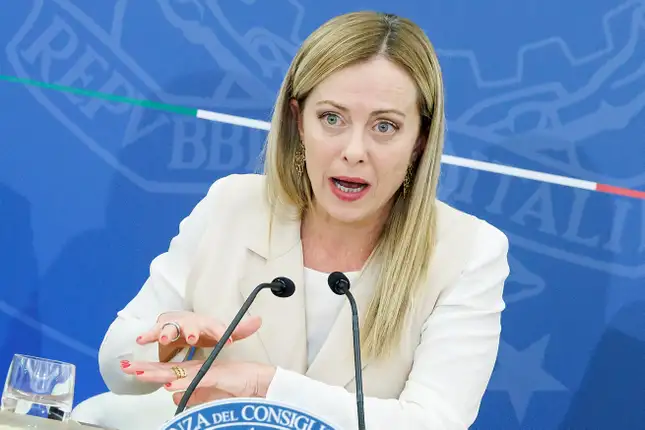
Italy’s far-right-led government on Monday approved a budget for next year that aims to bolster public health services, encourage families to have more children and put more money in the pockets of low- and medium-wage earners.
Premier Giorgia Meloni said the 24 billion-euro ($25 billion) budget, which includes 5 billion in spending cuts, is in line with the government’s priorities. She described it as both “serious” and “realistic,” even as Italy faces an expected increase of 13 billion euros in payments to service its public debt as interest rates increase.
The budget was approved by Meloni’s cabinet in a one-hour meeting before being sent for EU approval. Italian Finance Minister Giancarlo Giorgetti expressed confidence that the budget would be accepted by both the EU and markets.
A cut in payroll taxes will put 100 euros a month in the pockets of 14 million Italians, aimed at boosting spending power in the face of higher inflation, Meloni said.
The budget also includes payroll tax breaks to women with at least two children and will guarantee free nursery school from the second child onward in a bid to “undo the story that having children is a disincentive to work.”
Foreign Minister Antonio Tajani, head of the Forza Italia party, called the waiting lists “a national shame. … You can’t die of cancer because they do a scan when you are no longer there.”
The budget also raises the minimum pension, while cutting from 90 euros to 70 euros the annual fee assessed to households to support RAI state television.
Meloni’s Cabinet approved funds to build a long-discussed bridge connecting mainland Italy to Sicily, a pet project of League leader Matteo Salvini, who is the infrastructure minister. Salvini said work would begin next year.







